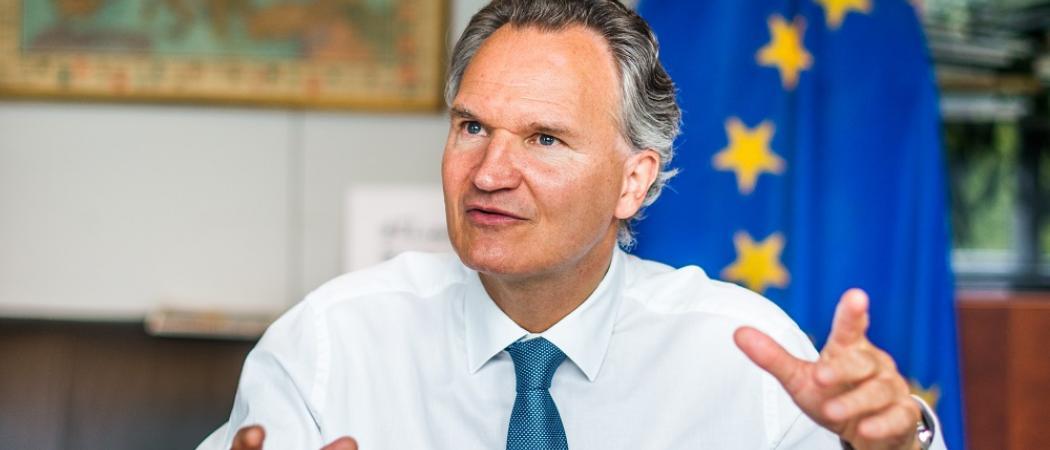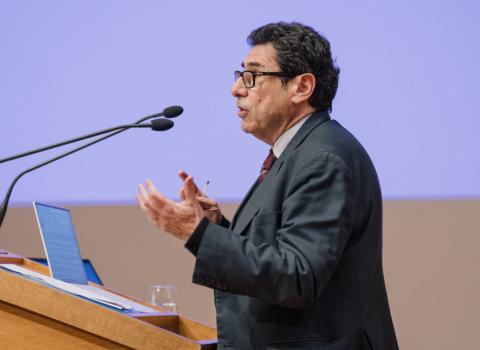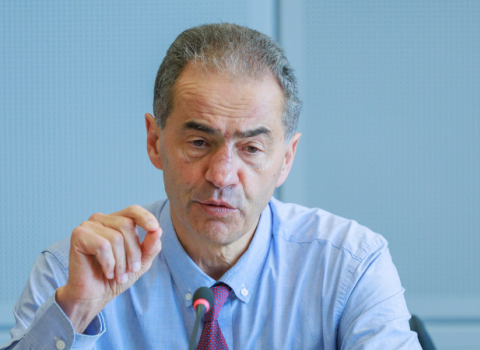Robert-Jan Smits says move by scientific council sends the wrong message, particularly given the agency is pushing for a bigger budget

Robert-Jan Smits, European Commission’s former director general for research and innovation. Photo: ERC.
The decision by the governing body of the European Research Council (ERC) to pull support for the radical open access initiative Plan S, is a “slap in the face” to all those who support the scheme, said its creator.
Robert-Jan Smits, the European Commission’s former director general for research and innovation, and also one of the founding fathers of the ERC, said the COVID-19 crisis “has shown the importance of making the results of publicly funded research immediately available” and not locked behind expensive paywalls with embargo periods.
Smits, who is now president of Eindhoven University of Technology, presented the original blueprint for Plan S in 2018, when he was the commission’s senior adviser on open access.
He called ERC’s move, announced on Tuesday, a bad strategy, particularly since the 19-member ERC scientific council is currently, “lobbying big time to get an increase in its budget,” Smits said. “Alienating your best and most powerful friends in such a crucial stage of the [EU budget] negotiations is not very clever. You don’t need to be a top negotiator to realise this.”
The scientific council, which includes leading scientists such as Nobel Prize winner Ben Feringa and director of the European Molecular Biology Laboratory Janet Thornton, spoke out this week for more funding, in the midst of EU governments’ negotiations on the next seven-year EU budget and the €750 billion coronavirus stimulus plan.
The decision to pull support for Plan S shows that the scientific council “is facing a leadership issue,” said Smits. “And with leadership I do not mean scientific leadership, I mean in particular strategic leadership. Let’s hope that a new president will provide this. Let’s find her soon.”
ERC has been without a permanent leader since April, when Mauro Ferrari resigned after only three months in the job, with a withering attack on the EU's scientific governance and political operations.
Research funding bodies signed up to Plan S, including the World Health Organisation, the Wellcome Trust, the Bill & Melinda Gates Foundation and national research funding agencies, say that from 1 January 2021, they will require scientists they fund to make the resulting papers free to read immediately on publication. The European Commission has also said it will follow the plan.
Smits said the pandemic had “motivated even the big commercial scientific publishers” to provide free and immediate access to all COVID-19 related publications and data. The crisis also inspired the editors of the medical journal Neuron to write a public letter to the Elsevier CEO, in which they called for the publisher to make this journal open access and to sign up to the principles of Plan S.
Plan S is spurred by universities’ and funding agency’s growing resentment that having funded research, they then have to buy back their own results by subscribing to science journals. Academic institutions pay millions for subscriptions, and in recent years the proliferation of journals and the high cost of subscriptions has severely strained library budgets around Europe.
Critics of the plan, on the other hand, warn that funders mandating where researchers publish impinges on academic freedom.
By withdrawing support for Plan S, ERC’s leaders “take an opposite stand which will not be understood, neither by the scientific community nor by the public and society at large,” Smits said.
“What message does the [scientific council] want to pass? What image does it want to give? That [it] is backtracking on open access? And this now, when the world is in desperate need of a vaccine which requires more than ever cooperation and openness between scientists?”
The ERC scientific council, in a statement this week outlining its change-of-heart on Plan S, suggests it would harm research careers, by limiting publication options.
The publication of research results in so-called hybrid journals that combine paywalls and open access content will be “non-compliant” with Plan S from next year. This condition applies to journals without a “transformative arrangement” – meaning those that have not committed to moving away from a pay to read subscription model, to a pay to publish framework.
To the ERC’s scientific council, pay to publish “will be detrimental, especially for early career researchers, researchers working in countries with fewer alternative funding opportunities or working in fields in which open access policies are more difficult to implement.”
According to Smits, creating the ERC “is the best thing the commission has ever done for European and global science and I will keep on saying this, despite what the scientific council decided recently.”
However, he called it “bizarre” that the council would use young researchers as an excuse to drop support for the scheme, “notably since so many European associations of young researchers are supporting Plan S.”
Smits said he expects the council instead “to stand up” for this younger generation of scientists by “promoting new metrics to assess their scientific output” rather than presenting subscription journals and their hybrid form as the best way to advance a scientific career.
In its own statement, the Plan S consortium, known as Coalition S, said it remains firm in its view that support for hybrid journals has failed to accelerate the transition to full and immediate open access over the past two decades.
The group also notes that the ERC scientific council was “involved in drafting Plan S”, and how in 2019 it “warmly welcomed the updated Plan S and implementation guidelines.”
Plan S backers say they “remain united in working together towards more open and equitable academic publishing.”





 A unique international forum for public research organisations and companies to connect their external engagement with strategic interests around their R&D system.
A unique international forum for public research organisations and companies to connect their external engagement with strategic interests around their R&D system.